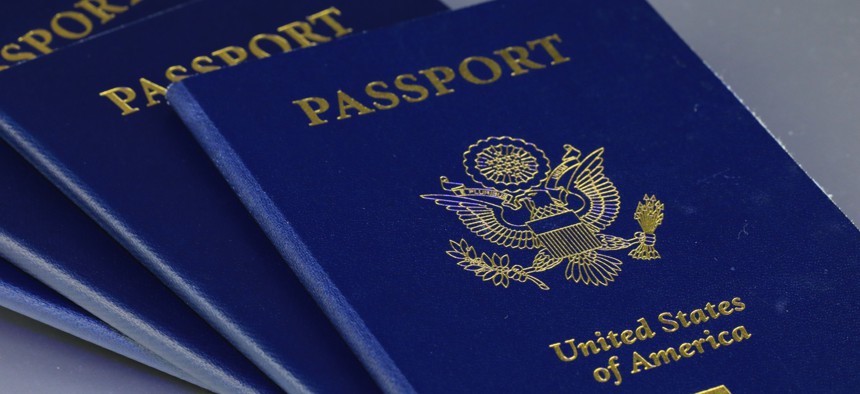State Department restores passport processing to pre-pandemic levels

State Department officials said they have improved wait times for passports to six-to-eight weeks, trimmed from the 10-to-13 weeks of processing time seen this summer. Douglas Sacha / Getty Images
A hiring surge and mandatory overtime has brought passport processing down to its lowest level in years.
The State Department is processing passports at its fastest clip in nearly four years, finally restoring the turnaround time to the same level Americans experienced prior to the COVID-19 pandemic.
Starting Monday, State said, Americans can expect to receive their passports six-to-eight weeks after sending in an application, or in two-to-three weeks if they pay an extra $60 for expedited service. State has been processing passports at a record pace and issued 24 million in fiscal 2023, outpacing its then-unprecedented fiscal 2022 total by 9%.
Over the summer, the wait times for passports grew to between 10 and 13 weeks. The matter drew attention from Congress, with members of both parties saying that timeline was far too slow. State on Monday said the improvement reflected “the work of dedicated employees working for the American people.”
“The Department of State is committed to providing the best possible service for our passport customers while upholding strict national security standards,” a department spokesperson said.
The passport office has increased staffing levels by 12% over the last year and still has hundreds of employees in the hiring pipeline. In addition to the new staff, State authorized between 30,000 and 40,000 hours of overtime per month from January through October. As it has for the last year, State will continue to recruit volunteers from throughout the department to surge personnel to passport processing. It will also solicit retirees and assign new hires to the posts before they take other assignments.
The department mandated overtime in 2017 and kept it in place for several years before the pandemic slowed travel, then reinstituted it in 2021 when the average wait time grew to 18 weeks.
Demand has skyrocketed in recent years: nearly half of Americans now have passports, up from 30% in 2008 and just 5% in 1990. The rush for Americans looking to travel abroad coincided with a downturn in capacity within State’s Bureau of Consular Affairs.
The largely fee-funded agency saw a 50% decline in revenue during the pandemic, though Congress eventually intervened to provide a cash infusion. That kept the bureau from laying off staff, but it still instituted a hiring freeze. It did not begin bringing on new staff again until January 2022.
While the pandemic exacerbated the issue, staffing problems in State’s passport processing predate that crisis. Under President Trump, State instituted a 16-month hiring freeze that the department told its inspector general in 2019 created “critical understaffing” for passport services.
State—which has seen the largest growth in the permanent civil service workforce of any department under the Biden administration—has requested $100 million in fiscal 2024 for hiring, which Rena Bitter, State’s assistant secretary for the Bureau of Consular Affairs, told Congress earlier this year would backfill vacancies and add 300 new positions.
Congress has yet to provide full-year funding for the current fiscal year, though a bipartisan bill approved by the Senate Appropriations Committee did not offer new spending for Consular Affairs as lawmakers said the surge of passport demand has provided the office with sufficient revenue.
The Fiscal 2024 National Defense Authorization Act, which Congress approved last week, contained a reauthorization for State that included direct hiring for up to 80 passport positions per year for three years. It will require more frequent updates on wait times and improved customer service, including an online chat feature and automatic notifications to passport holders one year before their document expires.
Bitter said hiring—while necessary—was only one part of the solution as improvements to technology will allow for more work to be automated.
“We can't hire our way, and we don't want to, out of the challenges that we have in terms of increasing workload,” she said earlier this year, “which is a trend. It's not an anomaly.”






